
We are in age of obesity and obsolescence. XXL has become the norm, yet very little we consume provides us with lasting value.
Calorific pap and gimmickry fuels our faddish consumption appetites: Extra features and ‘must have’ add-ons, ‘go large’ and ‘super-size’ offers. We are sold quantity instead of quality, immediate satisfaction rather than long term appreciation - from smart phones apps to mega-meal deals, replica football kits to sugar-laced coffee toppings.
And now it seems, a great number of modern elite level brass band test-pieces.
Leviathan quality
The subjective nature of musical appreciation will of course govern people’s opinions to whether the latest generation of these leviathan works are of a quality that can maintain their relevance beyond the here and now.
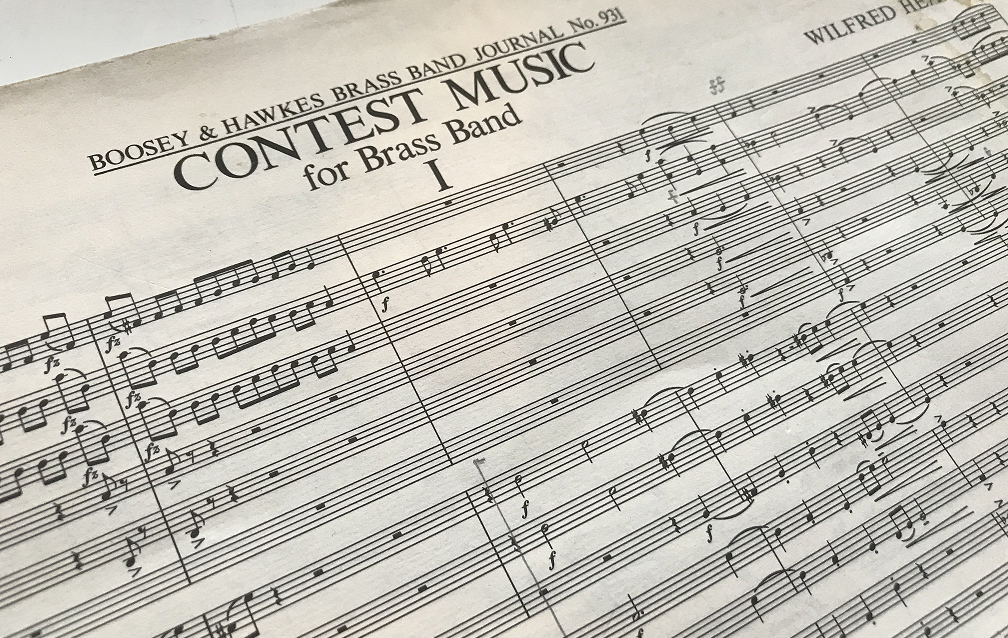
Some may well will attain the timeless status of ‘Contest Music’ (above) or ‘Cloudcatcher Fells’, and others become regular mainstays of own-choice contests in the years to come, yet far too many are also destined to gather dust on band library shelves.
Much depends on whether you believe they offer exciting new avenues of long overdue repertoire development, or, whether they are simply the latest examples of a stream of derivative thinking with more padded filler than a Brazilian butt lift.
Much depends on whether you believe they offer exciting new avenues of long overdue repertoire development, or, whether they are simply the latest examples of a stream of derivative thinking with more padded filler than a Brazilian butt lift.
Whatever your opinion, their emergence has highlighted a trend that continues to grow faster than our collective waistlines.
Testing ground
The European Championships has undoubtedly become the testing ground (although Switzerland and Norway are fast becoming creative laboratories) - an event that itself has become bloated in size with a record 15 elite bands competing in Stavanger.
It meant that the start for the set-work element was brought forward by two hours to accommodate the performances of ‘Transitions in Energy’ by Fredrick Schjelderup (below) which weighed in at a hefty 18+ minute mark.
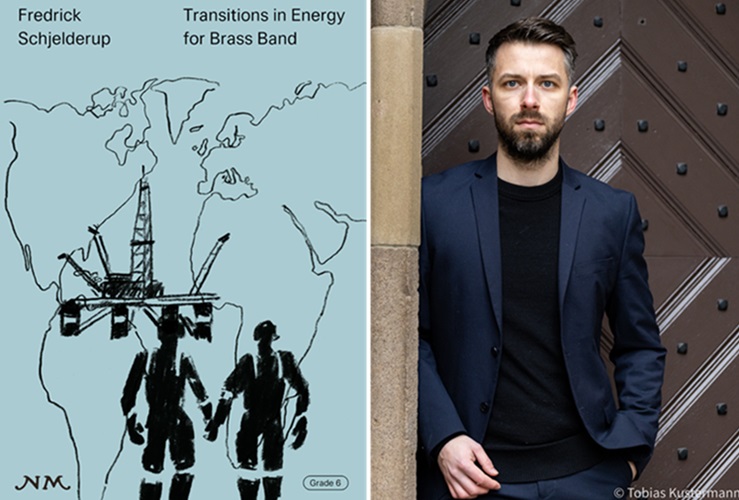
Stamina challenge
That brought a problem in itself. A 2.30pm Friday afternoon world premiere with the final band taking their bow around 10.30pm doesn’t really fit in with audience needs, despite the ‘sold out’ signs.
It had the feel of accommodating expediency rather than musical excellence.
Not only did it become a stamina challenge for the judges, but as seen by the vast fluctuation in empty seats in the hall, an equally demanding test of interest for listeners (not helped by a flawed ticking allocation system).
It had the feel of accommodating expediency rather than musical excellence.
Size and quality
That in turn brings us to the more subjective matter of size and quality – a perennial thorn that pricks visceral opinions when allied to thoughts on what constitutes true ‘championship section’ performance levels in many parts of the world (especially the UK).
There is little doubt ‘Transitions in Energy’ deserves to be heard again, but the question is where and by whom?
There is little doubt ‘Transitions in Energy’ deserves to be heard again, but the question is where and by whom?
Norway and Switzerland offer perhaps the best set-work opportunity given the quality and format of their Championship Section contests, but even the Norwegians had reservations last year about ‘The Lost Circle’ and got it dropped (allegedly due to its length, percussion requirements and difficulty).
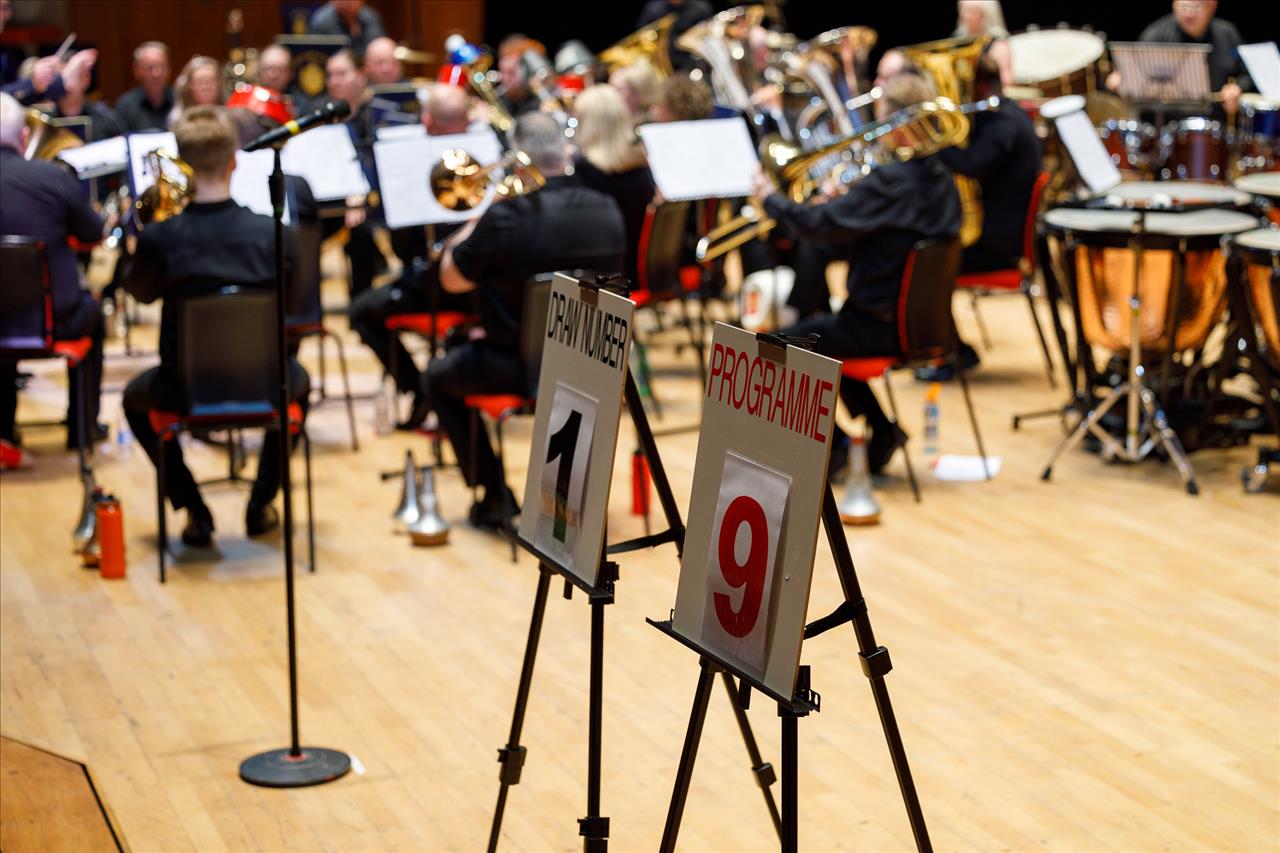
Can smaller numbers add up to substance?
Meanwhile, the British Open has just opted for a set-work of around 15 minutes (albeit for 18 bands) whilst the Albert Hall National Final has been cut to 19 bands (although, somewhat perversely they have picked a piece lasting around 19 minutes).
Perhaps major events are finally realising that super-size test-pieces are more of an occasional treat for audiences to enjoy rather than repeat items on a contest menu.
Perhaps major events are finally realising that super-size test-pieces are more of an occasional treat for audiences to enjoy rather than repeat items on a contest menu.
Rose tinted specs
It would of course be easy to look back through rose-tinted spectacles to the era of ‘leaner’ European set-works such as ‘The Land of the Long White Cloud’ (1980), ‘Journey into Freedom’ (1982), ‘The Year of the Dragon’ (1986) and ‘Connotations’ (1988) to suggest major test-pieces were of much better quality.
Their credentials though can be backed by a legacy of being played 39 times since they were first used at the event, as well as being picked as set-works for 130 other contests around the world.
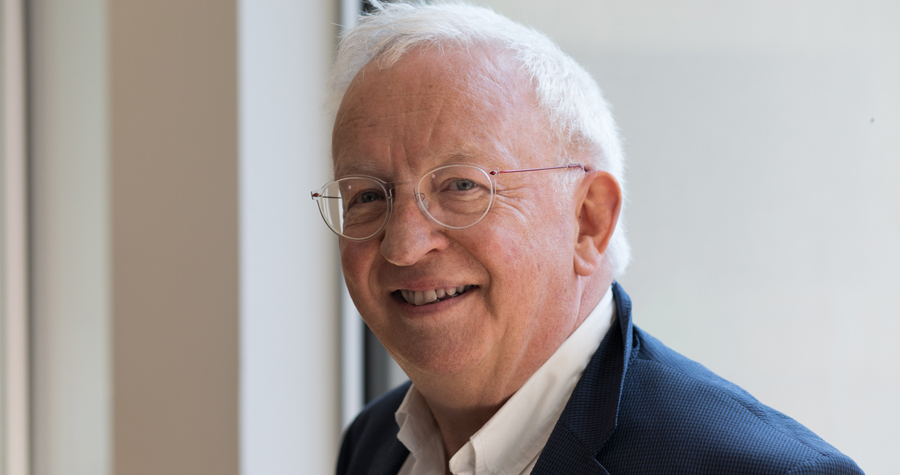
Edward Gregson's 'Connotations' has also been played 13 times as an own-choice work at the Europeans
Easy to forget
However, that would be to forget the likes of ‘Ciacona Seria’ (1983), ‘Le Chant de l’Alpe’ (1994), ‘Red Earth’ (1995) and ‘Burlesque for Band’ (1998) which have been repeated a grand total of once at the Europeans (in the Challenge Section) and used just once as a set-work elsewhere.
In fact, only ‘St Magnus’ and ‘Extreme Makeover’ which were written between 1994 and 2008 have been recycled as an own-choice selection at the event since, and only ‘Fraternity’ and ‘Dear Cassandra’ (just the once) repeated after bring used, between 2014 and 2023.
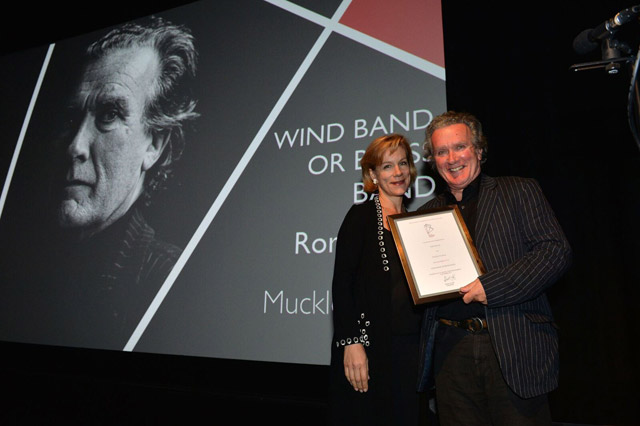
Slim chances
The chances of hearing Rory Boyle's award winning ‘Muckle Flugga’ (2014) again are slimmer than Manchester United’s hopes of winning the Champions’ League next year, whilst you would need Dan Brown to come up with a plot-twist if we are to hear Rolf Rudin’s ‘The God Particle’ (2015) any time soon.
The chances of hearing Rory Boyle's award winning ‘Muckle Flugga’ (2014) again are slimmer than Manchester United’s hopes of winning the Champions’ League next year
More likely, the future for ‘Transitions in Energy’, as with it seems ‘Where Angels Fly’ (2017), ‘Time for Outrage’ (2018), ‘Dear Cassandra’ (2019), ‘Saints Triumphant’ (2022) and ‘Aurora’ (2023) lies in being an occasional own-choice selection.
Others have prospered in this way, such ‘From Ancient Times’ (2009 – and played once elsewhere as a set-work and 41 times globally as an own-choice, including nine at the Euros), 'Audivi Media Nocte’ (2011 - 38 times in total including six at the Euros) and ‘Fraternity’ (2016 - five times as a set-work, and 74 times as an own-choice, including seven at the Euros).
Blockbusters
So, what of the new breed of enhanced own-choice ‘blockbusters’ so beloved of the bands at the contest?
Even ‘Music of the Spheres’, arguably the catalyst for the ‘bespoke’ showcase works that now dominate, is fast becoming a distant memory.
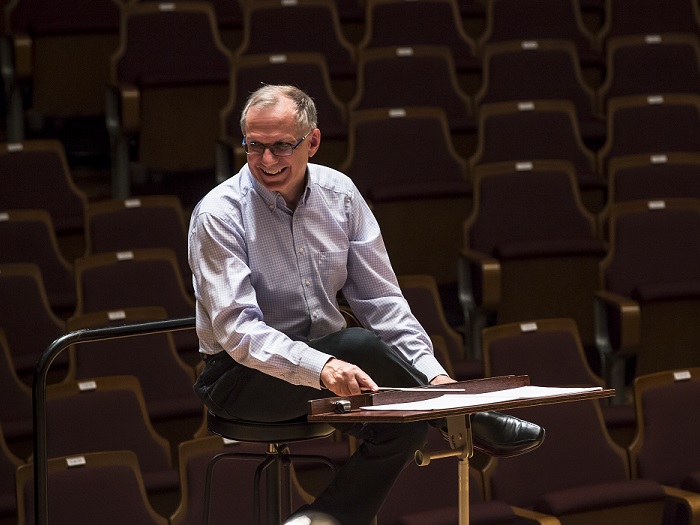
Written by Philip Sparke (above) for the YBS Band in 2004, it was used another 16 times up to 2019 – but not since.
In retrospect, even it now looks like a cruiserweight boxer chiselled to perfection rather than a heavyweight packed with blubber to wear down opponents with heft rather than precision knockout shots.
In retrospect, even it now looks like a cruiserweight boxer chiselled to perfection rather than a heavyweight packed with blubber to wear down opponents with heft rather than precision knockout shots.
Singular purpose
Interestingly, the list of the 20 most popular own-choice works in the contest’s history contains just one other (‘From Ancient Times’) written after that seminal date. Gilbert Vinter’s ‘John O’Gaunt’ has been played more times than ‘Audivi, Media Nocte’.

There may well soon by a large store of obsolete major test piece commissions...
It appears that many modern elite level test-pieces then are simply commissioned for a singular contesting purpose and nothing else (despite protestations and the boggling forewords to their scores) – sold with a bar code ‘best by’ date stamped on their packaging.
Looking at a random list of those arguably lost to obsolescence from 2005 up to the Covid 19 break is like reading an online menu of VHS releases from Blockbuster videos on a Blackberry phone.
Withered on the vine
Take your pick at the Europeans (as well as at other events) and those that have quickly withered on the contesting vine are many and varied – from ‘Beyond the Horizon’ and ‘Defiance’ to ‘Visitations from Beyond’ and many, many more.
The choice is ours – although don’t be surprised if audiences start to demand we lose a bit of weight, become a little less brash and cut down on the bling and sugar intake.
Some have of course thrived. Peter Graham’s ‘Journey to the Centre of the Earth’ for instance (premiered at the 2005 Europeans) has now been performed 120 times at various contests.
Future choices
So, what does the future hold for the raft of new major contest compositions for elite level bands – which just like the latest model of i-phone or burger bun, new season premiership football kit or raspberry flavoured skinny latte mocha coffee are sure to be advertised as the next best thing in the coming months?
The choice is ours – although don’t be surprised if audiences start to demand we lose a bit of weight, become a little less brash and cut down on the bling and sugar intake.
Iwan Fox













